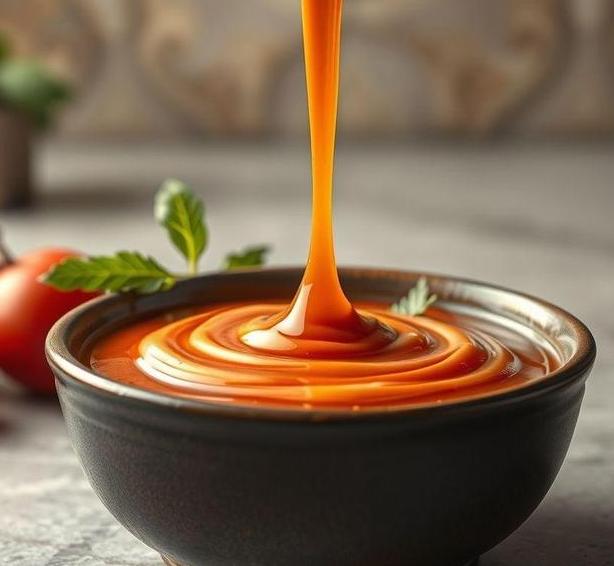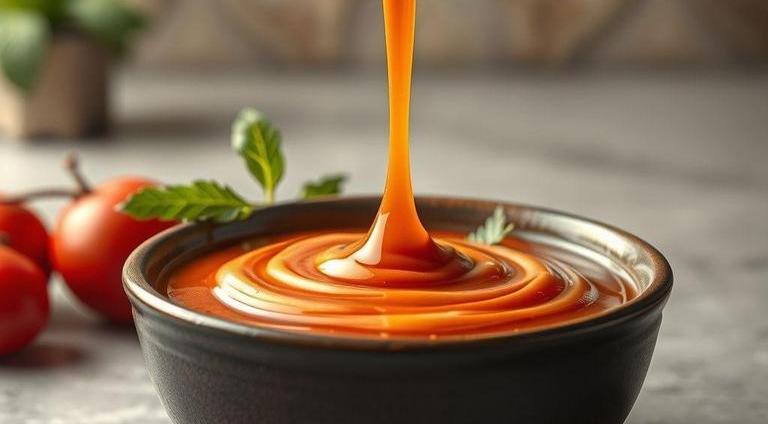Sauce is a kitchen staple, and whether it’s a tangy marinara, a rich alfredo, or a zesty barbecue sauce, it can elevate just about any dish. But what happens when you find a bottle or jar of sauce sitting at the back of your pantry or fridge, and you’re not sure if it’s still good to use? Can sauce actually go bad? Spoilers: Yes, it can. But the good news is that it’s usually pretty easy to tell if it’s gone past its prime-and even easier to store it properly to maximize its shelf life.
Let’s dive into this saucy topic and break down everything you need to know about sauce spoilage, how long it lasts, and how you can keep your sauces fresh for longer.
Can Sauce Go Bad?
Yes, sauces can absolutely go bad. In fact, most sauces, like any food product, have a limited lifespan. The key to their longevity lies in their ingredients and how they’re stored. Many sauces are made with perishable ingredients like tomatoes, dairy, or oils, which can deteriorate over time. The preservation methods (such as added preservatives, sugar, salt, or acidity) can slow down the process, but they don’t stop it entirely. Eventually, all sauces will spoil if not cared for properly.
Here’s what you need to know about the factors that contribute to sauce spoilage:
- Ingredients: If a sauce contains fresh dairy, herbs, or vegetables, it will typically have a shorter shelf life. Sauces with high levels of sugar, salt, vinegar, or citrus tend to last longer because these ingredients naturally act as preservatives.
- Exposure to air: Every time you open a bottle of sauce, oxygen gets inside, which accelerates the breakdown of its ingredients. The more air it’s exposed to, the faster it can spoil.
- Temperature: Sauce storage temperatures play a huge role. A sauce that’s kept in a warm environment (like an open pantry or left out too long at room temperature) can spoil much faster than one kept in a cool, dry place.
Shelf Life For Sauce

The shelf life of sauce varies depending on the type of sauce and its ingredients. Generally, the best-by date on store-bought sauce is a great starting point, but it’s important to note that many sauces can last beyond this date if stored properly. Here’s a breakdown:
-
Unopened Sauces
- Tomato-based sauces (e.g., marinara, pizza sauce): Unopened jars or bottles can last anywhere from 12 to 18 months past their best-by date if stored in a cool, dry place.
- Cream-based sauces (e.g., alfredo, béchamel): These are more sensitive, and you should aim to use them within 6-12 months for the best quality.
- Barbecue sauces: Typically, unopened barbecue sauces can last for about 1-2 years past the printed date, as they are high in preservatives like sugar and vinegar.
- Soy sauce, Worcestershire sauce, and hot sauces: These sauces have longer shelf lives due to their high salt content. They can last 3-5 years when unopened.
-
Opened Sauces
- Tomato-based sauces: Once opened, these sauces will last 5-7 days in the fridge, although they can last up to a week or two with proper storage.
- Cream-based sauces: Once opened, these sauces have a much shorter life-about 5-7 days in the refrigerator. Always make sure to keep them sealed tightly.
- Barbecue sauces: When refrigerated, opened bottles of barbecue sauce can last 3-6 months, but the flavors may start to degrade after a while.
- Hot sauce/soy sauce: These sauces, especially the hotter varieties, have a longer shelf life, typically 6-12 months after opening due to their preservative ingredients.
Remember, these timelines are estimates. Always use your senses to determine whether a sauce is still good, as the actual shelf life can vary based on the sauce’s ingredients and how it’s been handled.
Common Signs Of Spoilage
It’s crucial to know the signs that a sauce has gone bad, as some of them might be subtle. Here are the most common indicators:
- Smell: The most noticeable sign of spoilage is the smell. If the sauce has a sour, rancid, or off odor that wasn’t there when it was fresh, it’s a clear indication that it’s gone bad. Fresh sauces will smell flavorful, while spoiled ones will have a sharp, unpleasant aroma.
- Color Change: Sauces with tomato bases, like marinara or pizza sauce, can darken over time as they age. However, if the sauce has an abnormal or significantly different color, this could be a sign of spoilage. Similarly, cream-based sauces may develop a yellowish tint when they start to go off.
- Texture or Consistency: If the sauce has developed a slimy, curdled, or overly thick texture, it’s probably no longer safe to use. Some separation of liquid in sauces is normal, but if you see clumps or signs of curdling, it’s a red flag.
- Mold: The presence of mold (especially on the surface or along the edges) is an obvious sign the sauce has gone bad. This can happen if the sauce was improperly stored or wasn’t sealed properly after use.
- Taste: If all else fails, tasting a small amount will help determine if a sauce is spoiled. A sour, bitter, or off-flavor means it’s time to throw it out.
How To Store Sauce?

Proper storage is the key to maximizing the shelf life of your sauces. Here are some best practices to keep your sauces fresh and tasty:
-
Unopened Sauce
- Keep the sauce in a cool, dry place, like a pantry or kitchen cupboard. Avoid storing it near heat sources like stoves or ovens.
- Store it upright to prevent any leakage or damage to the seal.
-
Opened Sauce
- Refrigeration: For most sauces, refrigeration after opening is a must. This will slow down the breakdown of ingredients and keep bacteria at bay.
- Airtight Containers: Always close the cap or lid tightly after each use. If your sauce didn’t come in a resealable jar, you can transfer it to a glass or plastic container with a tight-fitting lid.
- Avoid Cross-Contamination: Don’t dip a used spoon or utensil back into the sauce jar, as this can introduce bacteria and speed up spoilage.
-
Freezing Sauces
- If you have a lot of leftover sauce and don’t plan on using it in the next week or so, freezing is an option. Tomato-based sauces freeze well and can be stored for up to 6 months in the freezer.
- For cream-based sauces, freezing is trickier, as the texture may change upon thawing. If you do freeze these, make sure to store them in an airtight container and reheat gently to avoid separation.
Expert Tips
- Use Clean Utensils: When scooping sauce out of a jar, always use clean utensils to avoid introducing bacteria. This will help extend its shelf life.
- Check for ’Best By’ Dates: Even though sauces can last beyond their best-by dates, always keep track of when you opened the bottle or jar, and use your senses to determine if it’s still good.
- Store Leftovers in Ice Cube Trays: If you don’t use all of a sauce in one meal, pour the leftovers into ice cube trays and freeze. This will make it easier to thaw individual portions when needed.
- Add Extra Acidity: If you’re trying to preserve an open jar of homemade tomato sauce, consider adding a little extra acidity (like lemon juice or vinegar). This can help extend its shelf life.
FAQs
Can Sauce Go Bad After Opening?
Yes, once a sauce is opened, it can spoil over time. The preservatives in sauces start to lose effectiveness after opening, and exposure to air, light, and bacteria can cause it to degrade. Typically, sauces last 1-6 months after opening depending on the type.
How Long Can Sauce Last In The Fridge?
The shelf life of sauce in the fridge varies by type. Generally, most opened sauces can last anywhere from 1 to 3 months in the fridge, though some may last up to 6 months if properly sealed and stored.
What Signs Indicate That Sauce Has Gone Bad?
Common signs that sauce has gone bad include a sour or rancid smell, discoloration, mold growth, and a change in texture. If the sauce appears thicker or more watery than usual, it may also be an indication of spoilage.
Does Unopened Sauce Expire?
Unopened sauce has a much longer shelf life and can last for months or even years past its best-by date if stored properly. However, it is still important to check for any signs of spoilage, like bulging lids or unusual odors, before use.
Can I Still Use Sauce After Its Expiration Date?
Using sauce after its expiration date may be safe if it has been stored correctly and shows no signs of spoilage. However, its taste, texture, and nutritional value may be compromised. It’s always best to inspect the sauce before consuming it.
How Can I Store Sauce To Extend Its Shelf Life?
To extend the shelf life of sauce, store it in an airtight container in a cool, dry place. For opened sauces, refrigeration is recommended, and ensure the cap or lid is tightly sealed. Some sauces, like tomato-based ones, may last longer if you freeze them.
Can Homemade Sauce Go Bad?
Yes, homemade sauce can go bad. It lacks preservatives found in store-bought versions, so it generally has a shorter shelf life. Homemade sauces should be stored in the fridge and typically last 3-5 days, but they can also be frozen for longer storage.
What Should I Do If I Notice Mold In My Sauce?
If you see mold in your sauce, it’s best to discard it. Mold can penetrate deeper into the sauce, even if only a small portion is visible on the surface. Eating moldy sauce can lead to foodborne illnesses.
Can Hot Sauce Go Bad?
Hot sauce has a long shelf life due to its acidic content, which helps prevent bacterial growth. However, it can still go bad if exposed to heat, light, or air. While it may not pose a serious health risk, its flavor and quality may deteriorate over time.
Is It Safe To Consume Expired Barbecue Sauce?
Barbecue sauce can be safe to consume after its expiration date, especially if it has been stored properly and shows no signs of spoilage. However, its taste and texture may be less than ideal, so it’s important to check for any changes before using it.